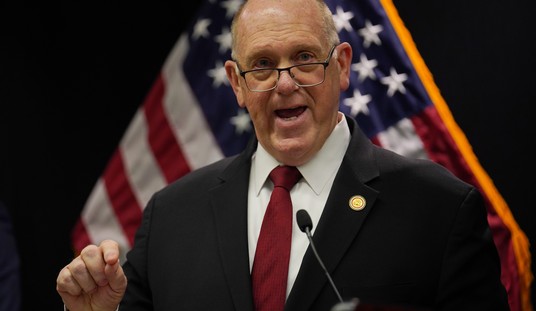Apologies if I missed it somewhere but I haven’t seen or heard that question put to McConnell. I’d be curious to know the answer, and so would Trump, I’m sure. A committee hearing is typically the first step for the Senate in confirming a judicial or cabinet nominee. The relevant committee grills the nominee then votes on whether to recommend to the full Senate that the nominee be confirmed, at which point the Senate votes by simple majority. (Supreme Court nominees can be filibustered before that final vote. Thanks to Harry Reid, no other presidential nominees can be.) Typically, if a committee votes not to recommend confirmation, the nomination is withdrawn. That’s what happened to Jeff Sessions in 1986 when Reagan nominated him to become a federal district court judge. Initially the Judiciary Committee voted 10-8 against him, then voted 9-9 on a proposal to send the nomination to the floor with no recommendation. Sometimes, though, the full Senate will vote on the nominee even if the committee’s given him thumbs down. That’s what happened to Robert Bork a year later, when the Judiciary Committee voted 9-5 not to recommend his confirmation to the Supreme Court. Bork wanted a floor vote of the full Senate, though, and he got it. They voted against him 42-58, thanks in part to the political cover they’d received from the committee.
Why should you care about any of this? Well, in the case of Secretary of State, you should care because the GOP’s advantage on the Senate Foreign Relations Committee is a very narrow 10-9. And one of those 10 is Rand Paul, who’s already made his opposition to John Bolton and Rudy Giuliani at State plain. If Trump nominates either of them, the odds are good that Paul will cross the aisle and vote with Democrats not to recommend confirmation. What will Mitch McConnell do then as majority leader? He can ignore the committee’s verdict and bring the nomination to the floor anyway to please Trump, which is what I expect he’ll do — or, I assume, he could defer to the committee and ignore the nomination, killing it. What about Trump? Would he withdraw the nomination if the committee spikes it or press ahead, daring the full Republican Senate to reject it too? (I think we know the answer there.) Most importantly, what will Senate Republicans do? As in the case of Robert Bork, a handful of GOPers might cite the committee’s verdict as reason to oppose Bolton and Giuliani, whether as a matter of respect for Senate institutions or to protect the influence of their own committees. After all, if Rand Paul’s committee can safely be overridden in choosing a State nominee, any other committee could be overridden on a relevant nomination. Committees would lose some power if that were normalized. You might see a critical number of Republicans vote no on the nomination simply as a courtesy to Paul and the Democrats in the committee majority. All it would take to kill it is four (assuming Joe Manchin votes with the GOP) crossing the aisle. And there’s already one in the form of Rand Paul.
This question is newly germane because Paul has a new op-ed out today expanding his litmus tests for State nominees. Before he was opposed to Bolton and Giuliani specifically. Now he’s opposed to anyone who stands by the decision to invade Iraq.
The media, never shy from engaging in the petty, obsessed over when exactly Trump opposed the Iraq War instead of exposing the stark differences between Trump’s worldview and Clinton’s worldview. Clinton’s regret over her support for the Iraq invasion seemed more contrived than heartfelt. She certainly never really grasped the historical lesson of Iraq, that regime change often leads to unintended and undesirable outcomes.
Iran is stronger and more of a menace because of the Iraq War. Iraq became a vacuum and then a sectarian-divided country closely aligned with Iran. If Clinton ever absorbed this lesson, it was not apparent given her continued advocacy for regime change in Libya and Syria…
Donald Trump needs a secretary of state who understands that we can’t build nations abroad and have enough money to rebuild our own nation. Both Trump’s foreign policy and domestic policy depend on him picking someone who has fully learned the historic lesson of the Iraq War: regime change and nation building don’t work and cost too much.
How about David Petraeus? He served loyally and with distinction in Iraq but didn’t have a say on whether to go to war. On the contrary, he famously expressed skepticism about the outcome shortly after the invasion started. That should help him pass the Rand Paul test if he ends up as Trump’s nominee for State, right? Not so fast. Here’s an interesting tweet from this afternoon:
Hillary does it — "lock her up." Gen Petraeus does it — CABINET POST! No. https://t.co/GpsbH1JO3F
— Doug Stafford (@dougstafford) November 28, 2016
Doug Stafford is Paul’s former Senate chief of staff and was a top advisor on Paul’s presidential campaign last year. He’s Rand’s right-hand man. If he’s saying no this definitively, Rand will probably say no in committee. And if the committee says no to Petraeus, what then? Trump should probably find out before nominating him, I’m thinking.
And what about the man of the hour, Mitt Romney? He supported the Iraq war and the surge, and he opposed Obama’s decision to withdraw troops from Iraq in 2011. Sure sounds like he’s destined to fail the Paul test. Again, though — not so fast. Watch the interview below with Paul from last night about his antipathy to Bolton and Giuliani. Romney’s name comes up and Paul is … noncommittal. He’s a hawk, Rand notes, but not quite as far out there as Bolton and Rudy are. But then, Paul has to say that, doesn’t he? After all, he endorsed Romney for president in 2012 knowing full well Mitt’s views on foreign policy. That shocked his dad’s fans but Paul was playing the long game, eyeing establishment support for his own ill-fated candidacy in 2016. It’d be a neat trick for him to explain how Romney was qualified to be president in 2012 but not qualified to be chief diplomat now when Mitt’s been mostly out of the politics game in the intervening four years.
Rand is asked who his own favorite candidate for State is, incidentally, and offers a name. I won’t spoil the surprise.








Join the conversation as a VIP Member